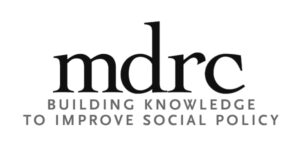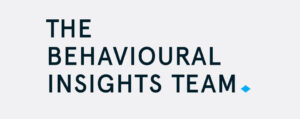Who We Are
we are a global community of public and private sector decision makers, behavioral science researchers, policy analysts, and practitioners with a bold mission to promote the application of rigorous behavioral science research that serve the public interest. we serve as an information hub, and community builder- connecting individuals and organizations through our conferences, spotlight workshops, taskforces, and the publication of newsletters and behavioral science & policy.
Our Philosophy
the impact of public and private sector policies depends critically on the behavior of individuals, groups, and organizations. we believe a clear understanding of the power of behavioral science research and interventions can provide innovative solutions for addressing challenges faced by policymakers and other practitioners.
Our Community
bspa is a global hub where behavioral scientists, policymakers, and other practitioners interact via conferences, workshops, briefings,and our membership portal. in addition, our membership services facilitate information exchange and collaboration to promote thoughtful application of behavioral science research in ways that serve the public interest. we actively collaborate with a number of behavioral policy oriented organizations and direct our members to their activities and services.
Meet Our Team
- All
- advisory board
- bspa team
- executive committee
- founding co presidents
- governing board
-

Paul Brest
Advisory Board
-

David Brooks
Advisory Board
-

John Seely Brown
Advisory Board
-

Gretchen Chapman
Governing Board
-

Aaron “Ronnie” Chatterji
Governing Board
-

Robert B. Cialdini
Advisory Board
-

Julia Lee Cunningham
Governing Board
-

Jason Doctor
Governing Board
-

Carsten Erner
BSPA Team
-

Craig R. Fox
BSPA Team,Founding Co-President
-

Carol L. Graham
Advisory Board
-

Adam M. Grant
Advisory Board
-

Michael Hallsworth
Governing Board
-

Morela Hernandez
Executive Committee
-

Hal Hershfield
Governing Board
-

Kaye de Kruif
BSPA Team
-

Katherine Milkman
Executive Committee
-

Julia Minson
Governing Board
-

Faisal Naru
Advisory Board
-

A. David Nussbaum
BSPA Team
-

Daniel Oppenheimer
Executive Committee
-

Jeffrey Pfeffer
Advisory Board
-

Todd Rogers
Executive Committee
-

Denise M. Rousseau
Advisory Board
-

Leslie Rowley
Governing Board
-

Ricki Rusting
BSPA Team
-

David Schkade
Executive Committee
-

Joe Simmons
Executive Committee
-

Sim B Sitkin
BSPA Team,Founding Co-President
-

Paul Slovic
Advisory Board
-

Cass R. Sunstein
Advisory Board
-

Richard H. Thaler
Advisory Board
-

Daniel J. Walters
BSPA Team
-

Kate Wessels
BSPA Team
Areas of Focus
-
Education & Culture
focuses on formal and informal education from early childhood to post-secondary education and lifelong learning as well as a range of cultural institutions, including the arts, sport, media, and other cultural institutions. Research in this area focuses on enhancements in pedagogy, teacher training, and educational administration as well as improvements in the functioning and effectiveness of cultural organizations.
-
Energy & Environment
research investigates the environmental effects of energy acquisition, transport, and production, as well as efforts for conservation and cleanup. Research in this area also focuses on the integration of environmental considerations into strategic development plans to support sustainable development.
-
Financial Decision Making
is concerned with developing quantitative methods and decision tools to help individuals, groups, and organizations make better financial decisions.
-
Health
research considers how the organization and financing of care affect choices of patients and providers of health care including costs, quality, access, and outcomes. The scope of this area includes physical health, mental health, and subjective well-being. Areas of focus include health care costs and outcomes, organizational and inter-organizational structures and processes, health insurance, health care reform, health information technology, patient decision making and behavior, and health care provider behavior.
-
Justice & Ethics
encompasses issues relating to the legal system, professional and organization ethics policies and regulations, including civil and criminal justice, corrections policies, crime information, juvenile justice, international law, court system and legal practice government and industry ethics procedures, and other civil and public safety issues. Researchers provide insights relevant to policy issues such as crime definition, policing, procedures for responding to crime, resources allocation, and sentencing structures and processes.
-
Management & Labor
research examines issues concerning workplace design and management, organizational governance and strategy, and workers. Specific topics include improved organizational design and incentives, effective governing boards, managerial communication and decision implementation, workforce compensation, employee-employer dispute resolution, human resource policies and practices, unions, and workplace safety and health.
-
Technology & Innovation
research examines factors that influence individual, group, organizational, and societal innovation and the development and deployment of technology. Specific topics include the effects of new technology on communication, privacy, and productivity; the influence of policy on innovation; and individual and organizational situational effects on creativity, invention, innovation, as well as innovation diffusion and adoption.
-
Behavioral Economics
aims to incorporate scientific insights on human behavior into the economic analysis of individual decision making, strategic interactions, and performance of financial markets.
-
Cognitive & Brain Science
includes the study of sensation, perception, learning, memory, language, reasoning, and judgment, as well as the study of brain development, functioning, and neural substrates of behavior.
-
Decision Marketing & Management Sciences
are concerned with how individuals and groups make judgments and choices, incorporating a variety of disciplinary perspectives, including economics, management, marketing, psychology, and statistics.
-
Organizational Science
is the study of organizational processes, structures, and strategies, including understanding how groups of organization members behave. This research draws on a number of fields, including human resources management, industrial and organizational psychology, organizational behavior, organizational communication, organizational sociology, organizational theory social psychology, and strategic management.
-
Political Science
investigates the theory and practice of politics with regard to political systems, behavior, and culture; it draws on theory and methods from numerous disciplines, including anthropology, sociology, economics, and psychology.
-
Social Psychology
investigates social behavior and individual behavior in a social context, including such topics as aggression, attitudes, attribution theory, group processes, interpersonal processes, prejudice and discrimination, self concept, social cognition, social influence, and stereotypes.
-
Sociology
researchers study social life, social change, and the social roots of and implications for human behavior, with a focus on the structures of groups, organizations, and societies.








